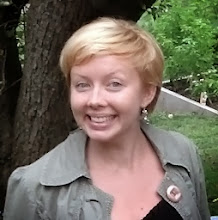 Before colonists brought corn and cassava from the Americas, West Africa had ignames or yams. But these ain't no sweet potatoes, which are only very distantly related to the true yam. These yams are ENORMOUS tubers (can grow to 2.5 meters in length and weigh up to 150 pounds) that are dug up, peeled, boiled, and pounded into the traditional dish fufu. Fufu is to Togolese cuisine as pasta is to Italian cuisine. It resembles a sticky mound of mashed potatoes and is accompanied by a variety of sauces: okra, groundnut, sesame, tomato etc. Yams are also stewed or deep-fried to make koliko (similar to French fries). Togo is one of the world's top 5 producers of yams.
Before colonists brought corn and cassava from the Americas, West Africa had ignames or yams. But these ain't no sweet potatoes, which are only very distantly related to the true yam. These yams are ENORMOUS tubers (can grow to 2.5 meters in length and weigh up to 150 pounds) that are dug up, peeled, boiled, and pounded into the traditional dish fufu. Fufu is to Togolese cuisine as pasta is to Italian cuisine. It resembles a sticky mound of mashed potatoes and is accompanied by a variety of sauces: okra, groundnut, sesame, tomato etc. Yams are also stewed or deep-fried to make koliko (similar to French fries). Togo is one of the world's top 5 producers of yams.The season to harvest new yams begins at the end of rainy season, typically between August and September. As the traditional staple food of West Africa, the first harvest of yams is accompanied by a large festival. Representative of Togo's plethora of ethnic groups, each region or village will organize it's own yam festival. Yet, certain festivals are more renowned. For instance, Bassar is well known for its fire-dancing ceremony.
Scheduling the festivities often depends on the weather, so the dates can only be confirmed a few weeks in advance. For this reason, I was unable to attend the Bassar festival. However, I have attended two others.
In 2007, while I was attending Peace Corps training, I lived with an Ewe family in southern Togo. Their village tradition featured the dance of the Panther. First, the young men of the village enter the Sacred Forest and cover themselves in mud. Then, one of the young men invokes the spirit of the Panther.

After the “Panther” paraded through the town, we all danced under the sacred trees—jumping up and down and shouting what sounded like “Cherry! Cherry!” I never caught the meaning of this chant, but it was a good time and was followed by freshly pounded fufu.
The following year, I was living at my post, Kaboli. The people living in this area are descendants from the Yoruba tribe; so the festivities included stilt walking and dancing that resembles a form of African martial arts. During the official ceremony, I felt honored when I was named in the prayers for good tidings over the next two years.





















